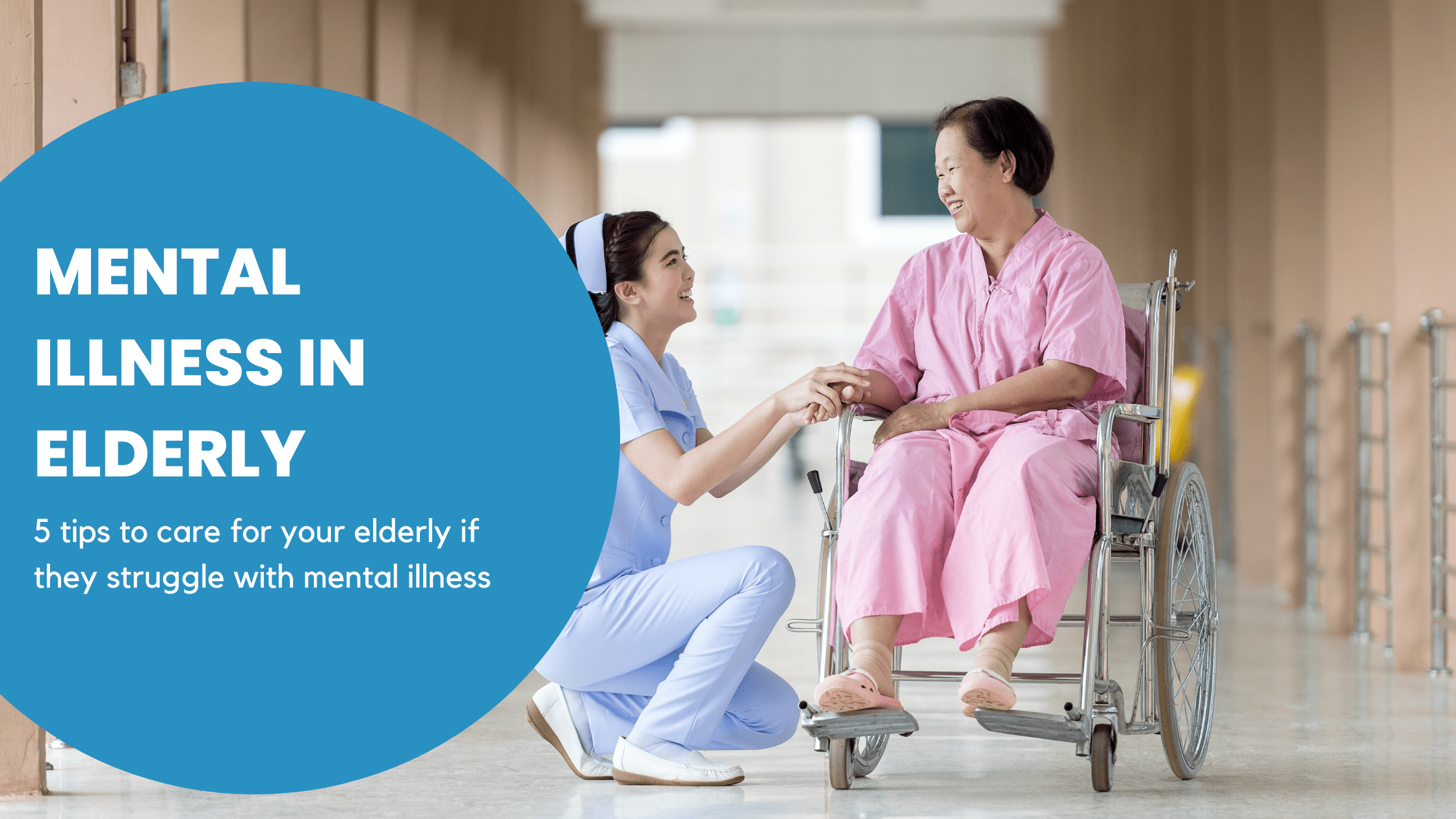5 Ways to Care for Elderly with Mental Illness
- Medicalassistance4u
- January 9, 2023
- Caregiving, Mental Health

Elderly mental health is an important area of healthcare that is sometimes overlooked and can lead to larger issues of elderly suicide.
Common elderly mental health disorders include delirium, dementia and depression. If you notice your loved one exhibiting signs of mental illness, it is advised to seek professional help.
Besides taking steps to improve their mental health, here are 5 ways to care for your elderly if they are struggling with mental illness.
1. Keep and organise medical records
 Photo by Alexander Grey on Unsplash
Photo by Alexander Grey on Unsplash
Keeping all medical records organised and in order goes a long way in ensuring your loved one receives the right care. Records can be kept and organised both digitally and in hardcopy.
By staying on top of diagnosis and treatments, caregivers will be well-informed and able to provide accurate information when speaking to doctors and healthcare professionals about their elderly.
2. Communicate
 Photo by Volodymyr Hryshchenko on Unsplash
Photo by Volodymyr Hryshchenko on Unsplash
Understanding how to communicate about the subject of your elderly’s mental health is important. Caregivers are most times the person relatives, friends and healthcare professionals turn to for information about the care recipient.
Managing communication and ensuring information is shared sensitively with these different parties can be difficult. Even so, this is important and respects the care recipient’s personhood.
3. Shared calendar
 Photo by Towfiqu barbhuiya on Unsplash
Photo by Towfiqu barbhuiya on Unsplash
Having a shared physical or digital calendar between the caregiver and their elderly allows the elderly to be involved in their care process.
There are many other ways to encourage independence in the elderly as they age. Feeling like an active participant in their healthcare can encourage the elderly to take ownership of their health. This plays a part in mitigating feelings of helplessness and thoughts of placing additional stress on their families.
4. Check-in often, note down new side effects
 Photo by Anglo Caregivers
Photo by Anglo Caregivers
It can be difficult to notice signs of mental illness, especially if the caregiver is living with their elderly and sees them daily. Changes also do not happen all at once.
Regular conversations with your loved one can help uncover any changes or new side effects they may have. Noting down observations regularly and keeping records provide reliable evidence should there be a need to identify and trace behavioural or physical changes.
If there are any signs of depression and suicidal thoughts, please contact a professional for help.
5. Take care of yourself too
 Photo by Sincerely Media on Unsplash
Photo by Sincerely Media on Unsplash
Last but not least, remember to take care of yourself.
As the caregiver, your physical and emotional health is crucial to the health of your care recipient. Sadly, caregivers tend to overlook this when taking care of others.
Self-care can be achieved in many simple ways. Remembering to do daily activities like exercising, sleeping, eating healthily and socialising go a long way to your own wellbeing. Do also set aside time for regular breaks and personal medical appointments.
Don’t be afraid to ask for help from family, friends and healthcare professionals when the need arises.
At Medical Assistance4u
Our team of medically trained staff at Medical Assistance4u can provide you with consultation services to assist you in providing good elderly care and finding the right assistive tool and medical equipment.
We also provide services like installation and repair services, relocation and disposal services for bulky medical equipment, home care services and transport for your wheelchair-bound loved ones.

